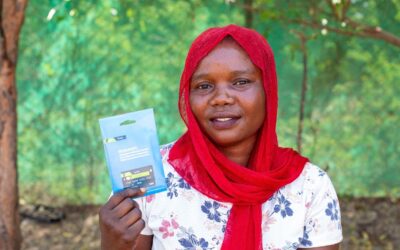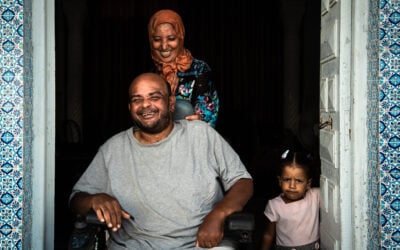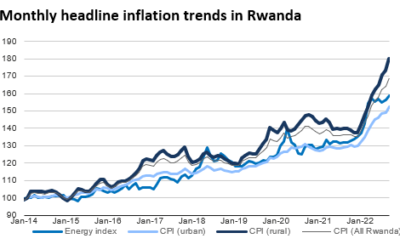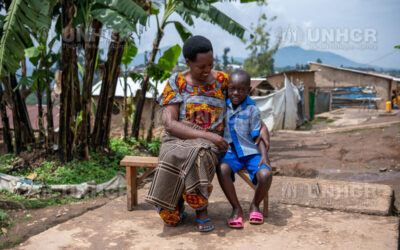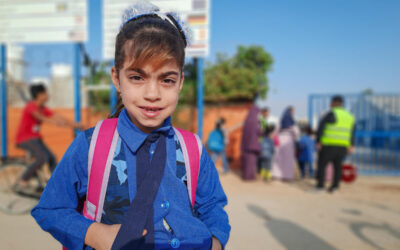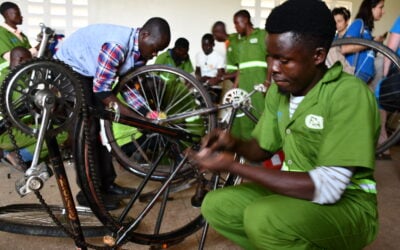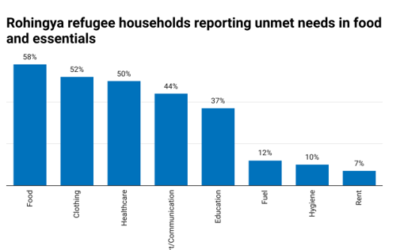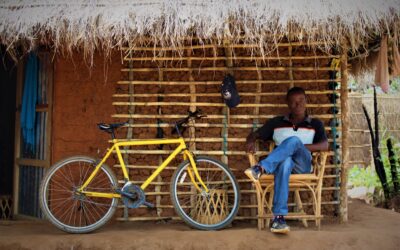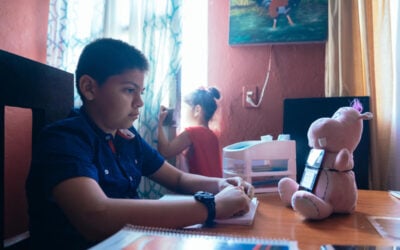Our Latest Articles
Gaining ground on refugee financial inclusion through advocacy, innovation and partnerships
Refugees’ financial needs evolve over time. Access to affordable and useful financial services ena-bles their socioeconomic inclusion and helps them better plan for their future.
More countries are including refugees in national health systems, and development partnerships are key to the process
To include refugees sustainably and effectively, there must be a well-supported health system capable of meeting the needs of refugees and host communities.
Building shock responsive assistance for refugees in Rwanda: a tale of inflation and chronic vulnerabilities
A shock-responsive assistance distribution system that allows for adjustments of assistance could be more effective in helping refugee communities cope with changes in the wider economy.
Rwanda lacks recent data on employment, skills, consumption – the cornerstones of good socio-economic programming
Reliable data is essential when planning appropriate solutions for refugees and surrounding communities. Data gaps are potential obstacles when advocating for the involvement of development partners to invest in effective programmes.
Five approaches for more refugee-friendly cities
On World Cities Day, UNHCR celebrates the mayors and local authorities who show solidarity with their refugee, internally displaced and stateless residents.
Social protection and humanitarian systems must work together to boost resilience and meet the needs of the forcibly displaced
While in the past emphasis lay on camps serviced by humanitarian actors, we now know that inclusion of refugees, IDPs, and stateless people in the hosting context is not only a good option, but a necessity to achieve better protection outcomes and to lay the ground for solutions.
Are education recovery systems including the forcibly displaced?
Sondous, 8, a Syrian refugee who has lived in Zaatari camp, Jordan, her whole life. The COVID-19 Global Education Recovery tracker (GERT) is a joint effort between the World Bank, UNICEF, and UNHCR to track the operational status of schools over the last two years....
Understanding successful social and economic integration – an example from Uganda
A UNHCR study in Uganda proposes stronger action linking youth to the labour market, among other policy steps to improve outcomes for refugees and Ugandan host communities.
Notable chart: Even with humanitarian assistance, Rohingya refugees face shortages in food and essentials
More than half of Rohingya refugees in Cox’s Bazar face shortages in food and essentials even after receiving humanitarian assistance.
With all eyes on Ukraine, research offers insights from the world’s other 86 million forcibly displaced
The second Research Conference on Forced Displacement examined the latest evidence on issues including internal displacement and returnees.
Las personas desplazadas en México se enfrentan a una mayor inseguridad debido a la COVID-19, siendo la población hondureña y salvadoreña la que corre mayor riesgo
Por Giovanni Lepri, Representante de ACNUR en México, Theresa Beltramo, Economista Sénior, ACNUR, y Craig Loschmann, Economista, ACNUR Américas Un niño refugiado hondureño, de once años de edad, sigue una lección escolar con su teléfono celular en su casa en el norte...
Displaced persons in Mexico face heightened insecurity due to COVID-19, with Hondurans and Salvadorans most at risk
The survey shows that displaced Honduran and Salvadoran households are notably worse off in nearly all measures compared to the Venezuelan population and host community, a fact that must be taken into consideration when designing public policies and programmes for these populations.

